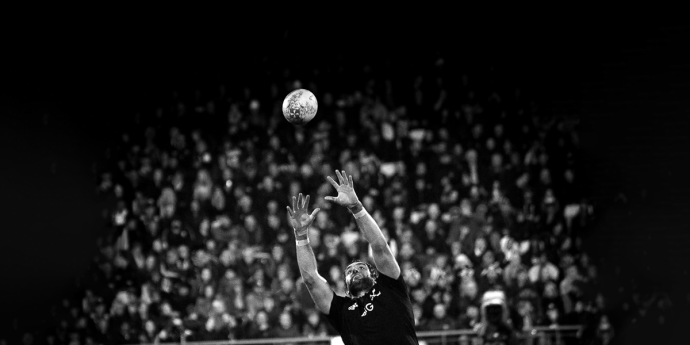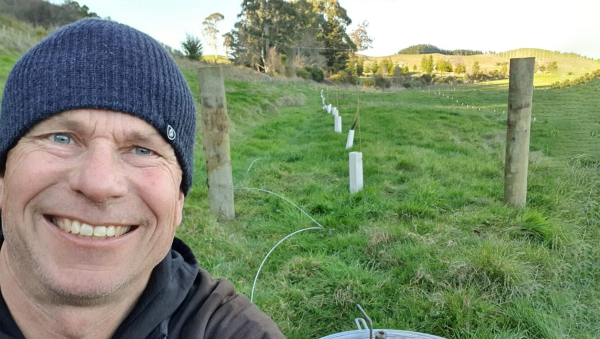Thrown in the deep end, boots and all
Chris Tremain MInstD makes sure succession is part of the conversation after his shock introduction to the family business.

James Coleman on Unsplash
Thrust into the world of governance after his father fell ill, Chris Tremain MInstD had to learn the ropes – quickly.
Kel Tremain, an All Black great in the 1960s who became chair of the Hawke’s Bay Rugby Union and was touted as a future chair of the New Zealand Rugby Union, owned Tremain Real Estate and Travel (originally Tremain and Greentree) when he became sick, leaving his wife, Pamela, and son, Chris, to take over the family business.
“I was pretty much running the show from that point on,” says Tremain, who was in the middle of his OE after graduating from Massey University. “It came as somewhat of a shock to have to take over the business, but that was the extent of our succession plan – very little.”
Along with his brother Simon, the pair grew the business, adding Sotheby’s and Colliers into their stable. Later, Chris’ transition into politics as the National MP for Napier (2005-2014), allowed his brother to take the helm. Since retiring from parliament, Tremain has returned to the family fold.
“We now have a business called Real Estate Brands and I am a director. It operates from Tauranga through to the Waikato, Taupō, Rotorua, Hawke’s Bay and the Wairarapa, and we’ve now purchased Sotheby’s in Palmerston North and opened Tremains in Levin,” he says.
“When you’ve been the leader of your own business for a long time, it’s hard to bring in an external person who starts challenging you, so you need to have an open mind if you’re going to invite an independent person to come to the table – you don’t want them to turn up to an ugly situation where people are just not getting on.”
As for what their succession plan looks like today, due to the growth of the business which has external shareholders and a non-family member as its CEO, there is now less dependence on family. “We’ve got a really significant business, so we can evolve, sell shares and bring on other directors,” Tremain says.
But that’s not to say that succession isn’t front of mind. His brother is chair of the board and there are plans in place for what happens next. “He does a great job, and increasingly our focus is, ‘how do we ensure the business can evolve beyond Simon and what he brings to the table?’ ” Tremain says.
Succession planning means treading carefully when dealing with family dynamics. It requires empathy and sensitivity, and that has always been at the forefront of Tremain’s mind when coming into other family contexts as an independent director.
"When you’ve been the leader of your own business for a long time, it’s hard to bring in an external person who starts challenging you, so you need to have an open mind if you’re going to invite an independent person to come to the table – you don’t want them to turn up to an ugly situation where people are just not getting on.”
Over the past five years, Tremain has been on the board of family business Mangarara Farms, alongside husband-and-wife team Rachel and Greg Hart. Long-time friends, Tremain was inspired by their regenerative farming techniques while watching the business grow.
When an off-shore partnership opportunity fell through, Tremain came up with the idea of forming a syndicate to keep investment local, creating opportunities for people to buy into the farm so it was wholly New Zealand-owned.
“We sold it to a range of people who were already in our investment community, and the group is called The Future Farming Syndicate. They now own 25 per cent of the farm and I represent the shareholders,” says Tremain.
By bringing an investment mindset to the table, Tremain has helped to future-proof the business by removing the debt, and creating additional capital that allows the farm to innovate and expand.
“We have formal board meetings and an agenda, we put tough items on it that need to be discussed and addressed up front, and we’re transparent around them. You don’t hide from them.”
In Tremain’s first summer on the board, drought was looming, and water was an issue on the hill country which needed to support 700 cattle. He helped to mitigate risk and bring new thinking to the board table, including showing that by investing upfront they could save and earn revenue by having water in those paddocks over a period of time.
“We sat and stewed on it for a while, the numbers were done and it stacked up, so a plan was put in place,” says Hart, who believes having Tremain involved on the board has brought a different approach because of his experience in the corporate world.
“Sharing burdens and decisions with an independent advisor are skills Chris brings, and it has been so beneficial in many situations,” says Hart, adding that another benefit was creating a document that stated the holistic goal for the farm business.
This was shared with all potential investors to ensure they understood the ethos behind the business and, additionally, Hart says it also provided a framework for decision-making. “Any tough decisions can be run through a process that ultimately ensures we stay on track with our holistic goal,” he says.
Putting more of a structure around their governance has also assisted with reporting disciplines, including staying across health and safety, which has been encouraged by Tremain.
“We have formal board meetings and an agenda, we put tough items on it that need to be discussed and addressed up front, and we’re transparent around them. You don’t hide from them. You must bring difficult conversations to the board table.”
Tremain’s input has enabled the business to capitalise on what is readily available on the property and continue growing its sustainability initiatives.
Tremain’s key advice for independent directors coming into a family business is understanding where the family is coming from, the drivers for their business, and knowing what needs to be done “without getting too much in the way”.
A solid foundation for communication and building on the relationship allows for ideas to be challenged through board processes that are understood and embedded. “That relationship is fundamental. You can add value and give ideas, but ultimately, the family are still the drivers of the business and you must understand that."